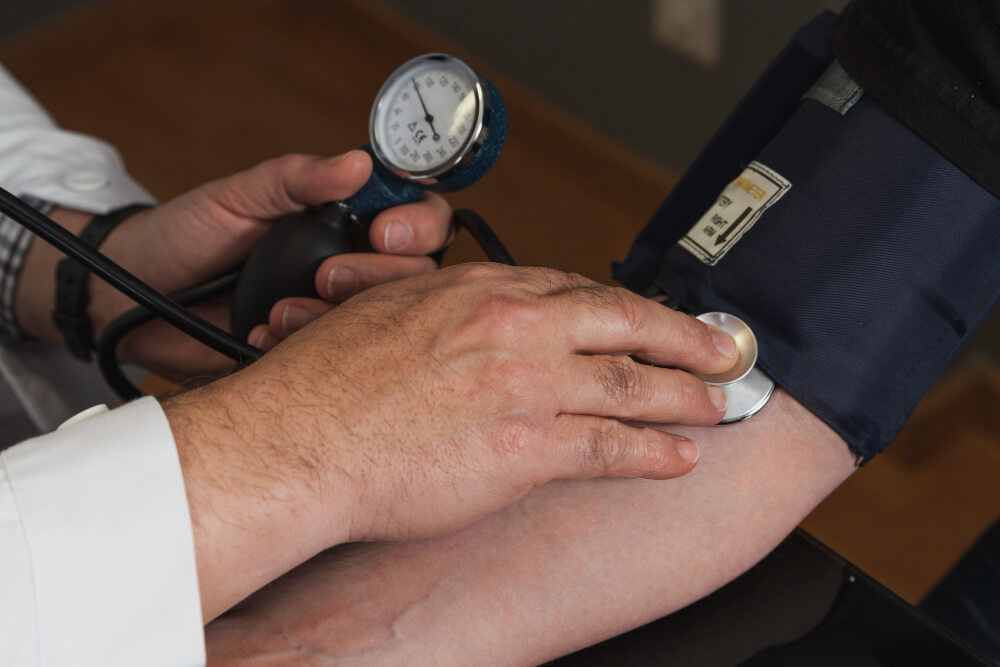Understanding High Blood Pressure: Treatment Options for Optimal Health
High blood pressure, or hypertension, is a common yet serious condition that affects millions worldwide. Left untreated, it can lead to severe health complications, including heart disease, stroke, and kidney problems. Fortunately, there are various treatment options available to manage and control high blood pressure effectively. In this comprehensive guide, we’ll explore these treatment options in detail to empower individuals with the knowledge they need for optimal health.
Lifestyle Modifications: The Foundation of High Blood Pressure Management
Diet and Nutrition:
A healthy diet plays a crucial role in managing high blood pressure. Emphasize a diet rich in fruits, vegetables, whole grains, and lean proteins while limiting sodium, saturated fats, and processed foods. The DASH (Dietary Approaches to Stop Hypertension) diet, which focuses on reducing sodium intake and increasing potassium-rich foods, has been shown to effectively lower blood pressure.
Regular Exercise:
Regular physical activity is another essential component of managing high blood pressure. Aim for at least 150 minutes of moderate-intensity exercise per week, such as brisk walking, swimming, or cycling. Exercise helps lower blood pressure, strengthen the heart, and improve overall cardiovascular health.
Stress Management:
Chronic stress can contribute to high blood pressure. Incorporate stress-reducing activities into your daily routine, such as meditation, deep breathing exercises, yoga, or spending time in nature. Additionally, prioritize adequate sleep, as lack of sleep can also elevate blood pressure levels.
Medications: Pharmacological Approaches to Blood Pressure Control
Diuretics:
Diuretics, also known as water pills, are often prescribed as the first line of treatment for high blood pressure. They help the body eliminate excess sodium and water, thereby reducing blood volume and lowering blood pressure. Common diuretics include thiazides, loop diuretics, and potassium-sparing diuretics.
ACE Inhibitors:
Angiotensin-converting enzyme (ACE) inhibitors work by relaxing blood vessels, making it easier for blood to flow and lowering blood pressure. These medications are often prescribed for individuals with hypertension, heart failure, or kidney disease. Examples include lisinopril, enalapril, and captopril.
Beta-Blockers:
Beta-blockers reduce blood pressure by blocking the effects of adrenaline, slowing the heart rate, and decreasing the force of contraction of the heart muscle. They are commonly used to treat high blood pressure, angina, and heart failure. Examples include metoprolol, propranolol, and atenolol.
Calcium Channel Blockers:
Calcium channel blockers prevent calcium from entering the cells of the heart and blood vessels, leading to relaxation of the arteries and lowering of blood pressure. These medications are often prescribed to treat hypertension, angina, and certain heart rhythm disorders. Examples include amlodipine, diltiazem, and verapamil.
Angiotensin II Receptor Blockers (ARBs):
ARBs work by blocking the action of angiotensin II, a hormone that causes blood vessels to constrict. By relaxing blood vessels, ARBs help lower blood pressure and improve blood flow. They are commonly used to treat hypertension, heart failure, and diabetic kidney disease. Examples include losartan, valsartan, and irbesartan.
Complementary and Alternative Therapies: Adjunctive Approaches to Blood Pressure Management
Herbal Remedies:
Certain herbs and supplements may offer potential benefits for lowering blood pressure. Examples include garlic, hawthorn, hibiscus, and omega-3 fatty acids. However, it’s essential to consult with a healthcare professional before incorporating these supplements into your regimen, as they may interact with medications or exacerbate certain health conditions.
Acupuncture:
Acupuncture, an ancient Chinese therapy involving the insertion of thin needles into specific points on the body, has been studied for its potential effects on blood pressure regulation. While research results are mixed, some studies suggest that acupuncture may help lower blood pressure by reducing sympathetic nervous system activity and promoting relaxation.
Conclusion:
High blood pressure is a significant risk factor for cardiovascular disease and other serious health complications. Fortunately, there are various treatment options available, ranging from lifestyle modifications and medications to complementary and alternative therapies. By working closely with healthcare professionals and adopting a holistic approach to blood pressure management, individuals can take control of their health and reduce their risk of hypertension-related complications. Remember, consistency and adherence to treatment recommendations are key to achieving and maintaining optimal blood pressure levels for a healthier future.


